#eBook format
Explore tagged Tumblr posts
Text
Navigating the Digital Landscape: Insights from a Comprehensive Marketing eBook
Today's business landscape is heavily influenced by digital trends, presenting both challenges and opportunities for organizations. Marketers must adapt to changing consumer behaviors and leverage digital tools to effectively reach their target audiences. An eBook focusing on marketing strategies offers valuable insights on data analytics, social media, and content marketing. By incorporating both theory and practical tips, the eBook aims to help professionals enhance their strategies and keep up with emerging trends. The goal is to provide businesses with the knowledge needed to navigate digital marketing successfully, engage audiences effectively, and achieve sustained growth. Whether you're a seasoned marketer or just starting out, the strategies outlined in this eBook offer essential guidance for thriving in the ever-evolving digital space.
Discover essential strategies in the Marketing eBook for effective digital engagement and growth.
The Marketing eBook provides strategies for boosting digital engagement and growth in a competitive environment by understanding the audience, utilizing data analytics, and creating personalized content. Focusing on user experience and optimizing digital interactions can enhance online presence and increase customer loyalty. Additionally, the impact of new technologies like artificial intelligence and automation in improving marketing efficiency is discussed. By incorporating these strategies, businesses can provide customized experiences to a larger audience and position themselves for ongoing success in the changing digital market.
Gain valuable insights to optimize your marketing efforts with the comprehensive Marketing eBook.
The Marketing Ebook is a valuable resource for businesses seeking to improve their marketing strategies by providing tools for analyzing customer behavior and preferences. By following the guidelines in the Ebook, brands can identify key performance indicators, allocate resources efficiently, and maximize their return on investment. The Ebook also offers insights into innovative marketing practices, such as social media strategies and content marketing, helping businesses connect with their audiences. With practical frameworks and actionable tips, companies can create effective campaigns that attract attention and build lasting customer relationships, empowering marketers to adapt to changing market conditions and maintain relevant strategies in a fast-paced environment.
Enhance your understanding of digital marketing trends through practical guidance offered in the Marketing Ebook.
The Marketing eBook is a valuable resource for professionals in the digital marketing industry, providing insights on new trends and best practices. Through case studies and real-world examples, it demonstrates how successful brands adapt to changes in technology and consumer behavior. Emphasizing the importance of flexibility in marketing strategies, the eBook equips businesses with tactics that reflect current digital trends, helping them remain relevant and effective in a competitive market. By applying the recommendations within the eBook, marketers can enhance their knowledge and make better decisions to increase the success of their campaigns.
"Navigating the Digital Landscape" is a valuable eBook for marketers seeking success in the ever-changing digital realm. The eBook provides practical strategies for leveraging new technologies and online platforms effectively. It emphasizes the importance of adaptability and continuous learning to keep pace with the fast-evolving market. By implementing the advice and techniques outlined in the eBook, marketers can enhance their campaigns, better engage their target audience, and achieve greater success. Staying informed and flexible is crucial for staying competitive in the dynamic marketing landscape. In essence, this resource offers a roadmap for marketers to excel in the ever-changing digital environment.

Visit: VS Website See: VS Portfolio
0 notes
Text
In twilight's hush, a secret bloomed, A gift unveiled by time's sweet pull. In past and future, bound together, The threads of fate weaved through the years. A whisper in ancient stone, A promise in a present smile. The echoes of tomorrow sang, As the heart of yesterday thrummed. A dance of destiny unfurled, Time's tapestry woven by dreams.
#writing#story#fiction#reading#creativity#literature#imagination#author#ebook format#digital publishing#online library
0 notes
Text





Some Faraway Place the book of all time (Rose talk to your therapist about your dad PLEASE)
74 notes
·
View notes
Text
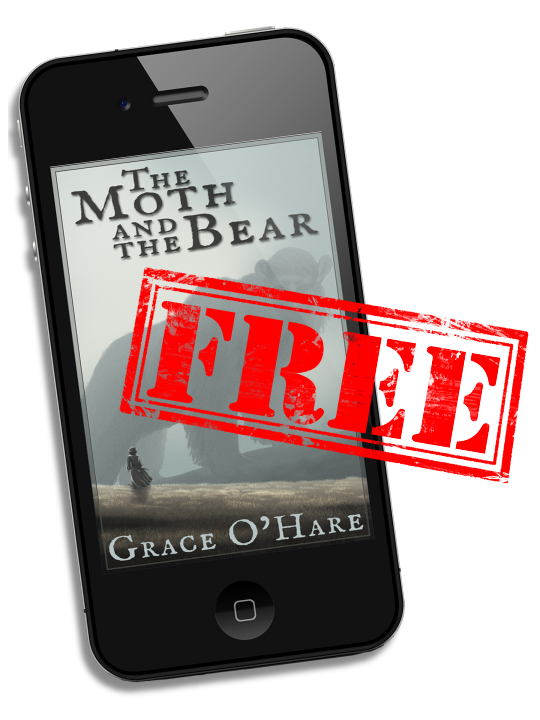
it's free now!
#zero dollars wow#thank you all who've bought book I over the years! I appreciate your support!#let me know if you guys would like to read directly on my website#been thinking that might be worth doing but I'm not sure how to best to format it#ebook#tmatb#free ebooks#indie author
143 notes
·
View notes
Text
I was thinking back to the post I made about ebooks being so much more accessible for so many people compared to paperbacks/hardbacks and the other thing I wanted to add is the vast, vast majority of the time, the author gets so much more profit comparatively for an ebook than a paperback/hardback.
That's not a problem for huge huge huge authors either way, but for small-time authors, or authors with small publishing houses, the difference in profits can sometimes be $2.00 or $3.00 per ebook sold vs. $0.50c or $1.00 per paperback. Really. You pay more, but the author gets a lot less.
In the case of indie authors like myself, ebooks give the highest returns always.
This isn't necessarily something most readers think about, but I have had readers assume that because the book format cost them more, that automatically means more goes to the author. In fact it's often the opposite. There are very few exceptions (university texts come to mind). But in the case of your run-of-the-mill indie fiction, if you genuinely want the most profit to go to the author, get the ebook.
#asks and answers#ebooks more than any other format - audio / paperback / hardback#almost always return profits the fastest#it's hard to explain#but yeah that's how it goes#there are exceptions just like#there are exceptions to everything#also the most expensive format for any author is audio#this is why so many indie authors are straight up using Gen-AI to produce audiobooks#a novel costs around $4000-6000 USD to record in audio#and most indie novels only ever make $1000 over their lifetime if that#for many authors they are either vanity projects#or they thought they'd earn out the loss and then realise just how broke they are#for all that accessibility is extremely important#audiobooks and the cost have killed indie careers#keep it in mind before asking an author to create an audiobook#that's only ever going to sell about 50 copies sdlakfjdas
120 notes
·
View notes
Text
I keep thinking about Lewis' review of The Hobbit, because he claimed that the main thing contemporary reviewers compared it to was Alice's Adventures in Wonderland. Was fantasy in that poor of a state that Alice was the closest thing they could think of? Comparing that chaotic fever dream to Tolkien's intricately crafted world? Lewis does specify that the comparison is that both books are by an "Oxford professor at play", but they're otherwise so different that putting the two in the same category baffles me.
#books#tolkien#the hobbit#c.s. lewis#alice's adventures in wonderland#(i just reread alice because the nicely-formatted bookbinding pdf made a nice ebook)#(thought i'd give it another chance after seeing how foundational it is (mentioned in so many other works))#i think there's an unbridgable cultural gap somewhere#i can't fathom how anyone can read this and become invested in wonderland as a world#it's so random and so chaotic and everyone's a pun and no one's a character#and yet somehow there are books upon books upon books that try to turn it into a dark fantasy world#it doesn't make sense! it's a world that's not supposed to make sense!#and yet they try to treat the government as legitimate and the queen as a real threat etc.#okay sorry for the digression#but my point is that it's odd that there was nothing else in that seventy-ish year gap for them to compare it to#the only thing coming to mind is peter pan#i suppose george macdonald and e nesbit both had their own brands of popular children's fantasy#maybe the real shocking thing about that comparison#is that i'm so used to seeing it compared to narnia that putting the hobbit in a category with any earlier fantasy work seems weird
124 notes
·
View notes
Text
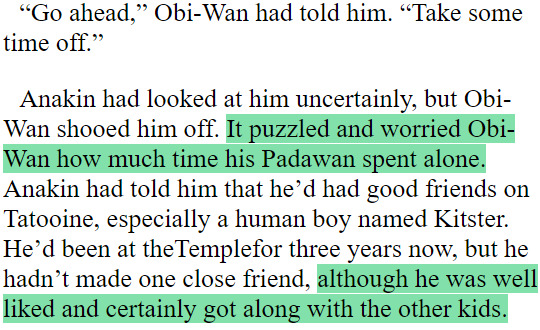


tbf he's not wrong about the council... Jedi Apprentice - Deceptions
#Oh Anakin you sweet darling. There's been more segments I wanted to add but it became too long to be easily memeable so haha#Anakin said he'd go for a swim and Obi-Wan sees the other kids there later and is smiling and glad hiding to glance at Anakin having fun#But Anakin is not there... so Obi-Wan is like SIGHS because he knows Anakin is hiding in his room building droids...#anakin skywalker#Anakin#Star Wars Novels#Star Wars Books#Obi Wan Kenobi#Obi Wan#Star Wars#sw books#Jedi Apprentice Deceptions#Jedi Apprentice#buns.edits#buns.all#The formatting of this book is slightly bad in my ebook reader-- deleted spaces in a few spots but it's readable enough XD
195 notes
·
View notes
Text
The Demon of the Lonely Isle by Edogawa Ranpo

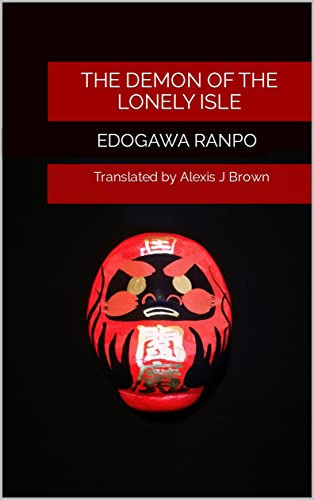
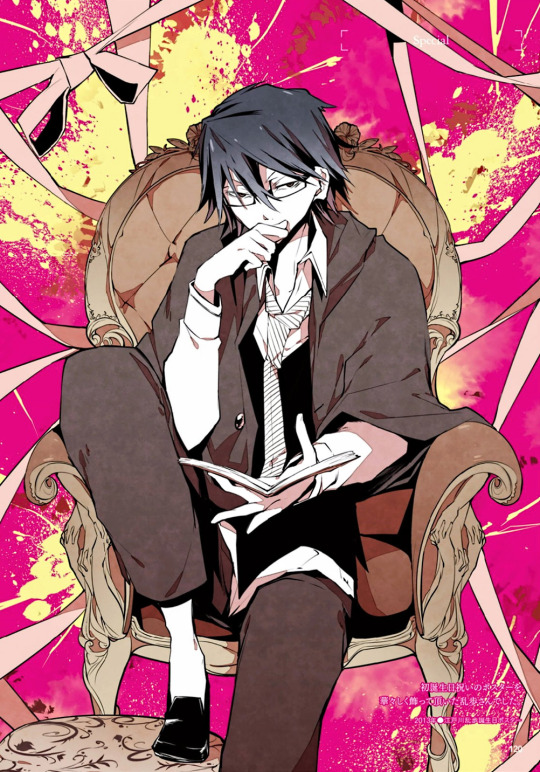
Whatever challenge or hardship we face, it is never as dreadful as that which we are able to imagine.
- Edogawa Ranpo, The Demon of the Lonely Isle
Our youthful spirits were still capable of enjoying such adventures and thrilled at keeping secrets. Added to this, the type of relationship that existed between Michio and myself meant we were more than just 'friends'. Michio's affection for me was atypical - although I didn't really comprehend how he felt, I understood it on an intellectual level - and like any normal romantic sentiment it wasn't necessarily unwelcome, so when we were face to face, there was a kind of sweet sexual tension in the air. This tension perhaps made our 'game' all the more pleasurable.
- Edogawa Ranpo, The Demon of the Lonely Isle
Nobody can see the plight we're in, we can't see each other's faces. After we die, our bodies will lie here undiscovered for eternity. But just as this place has no light, it has no laws, no morality, no customs. It is another world, where humanity is extinguished. In the short time we have left, I want to disregard all such formalities. We need not feel embarrassment or jealousy, or hide behind good manners or put on a show anymore. We're like two newborn beings, the only living creatures in this primordial darkness. - Edogawa Ranpo, The Demon of the Lonely Isle
A little bit of darkness and people fall to pieces. Get a hold of yourself. Where there's life there's hope.
- Edogawa Ranpo, The Demon of the Lonely Isle
Fun Fact:
Ranpo's friend and fellow detective writer Yokomizo Seishi (1902-81) wrote, 'the love for the same sex, which had been a long-standing desire of the author [sakka no hisashiki ganbō de atta dōseiai], had finally been incorporated into this novel.' An insert to another multivolume collection of Ranpo's works published in 1938 and 1939 emphasizes in boldface type that Kotō no oni is 'a work in which the author dealt with the topic of same-sex love.'
- Jeffrey Angles, Writing the Love of Boys pages 14-15
#edogawa ranpo#the demon of the lonely isle#kōto no oni#japanese literature#bungo stray dogs#bungou stray dogs#bsd#book recomendations#book recs#I'd recommend buying the ebook for this one because the paperback had weird formatting
77 notes
·
View notes
Text
Having finally published my book, I think everybody's wrong, the worst file format of all time has got to be .epub. Jesus Christ. Like what if PDFs fucking sucked, and didn't work, and didn't retain any of the formatting information you put into it? and what if what it looked like entirely depended on what app you use to read it?
#The illustrations I put into it still look like shit after hours of formatting work#It's to the point where I might just slash the illustrations from the ebook version entirely and make them print exclusive#self publishing
14 notes
·
View notes
Text
Understanding E-Book Typing: The Art and Science of Digital Content Conversion
1. What is e-book typing?
E-book typing is a specialized process that involves the meticulous conversion of written content into a digital format that aligns with the requirements of e-books. This intricate task encompasses transcribing text from a variety of sources, including manuscripts, articles, and printed books, into electronic documents that are both accurate and easily navigable. Beyond simple transcription, e-book typists are responsible for formatting the text according to established e-book standards, which includes adjusting font sizes, line spacing, and chapter headings to ensure optimal readability across a range of devices, from e-readers to tablets and smartphones. A keen attention to detail is paramount in this process, as typographical errors or formatting inconsistencies can detract from the reading experience. In addition to the technical skills required for accurate typing and formatting, e-book typists must also be well-versed in e-publishing guidelines and best practices. This knowledge enables them to incorporate interactive elements such as hyperlinks, images, and bookmarks, which not only enhance the aesthetic appeal of the e-book but also improve user engagement and navigation. Furthermore, the role of e-book typists is increasingly significant in the digital age, as they contribute to the democratization of literature by making it more accessible to a broader audience. By transforming traditional print materials into dynamic digital formats, e-book typists play a vital role in facilitating the dissemination of knowledge and stories, ensuring that literature continues to thrive in an ever-evolving technological landscape.
2. How are eBooks used?
eBooks have become an integral part of modern reading practices, providing users with a flexible and accessible means of consuming literature and educational material. They are utilized across various platforms, including dedicated eReaders, tablets, and smartphones, allowing readers to carry an extensive library in a single device. eBooks offer features such as adjustable font sizes, built-in dictionaries, and bookmarking capabilities, enhancing the reading experience. Furthermore, they facilitate immediate access to publications, enabling users to download and read materials instantly. Educational institutions leverage eBooks for course materials, promoting a more sustainable approach to learning while catering to diverse learning styles.
3. Are eBooks easy to read?
The readability of eBooks is a multifaceted aspect that significantly varies based on individual preferences and the unique features offered by various e-reading platforms. Many readers express appreciation for the customizable elements that eBooks provide, such as adjustable font sizes and background colours. These features not only cater to the aesthetic preferences of users but also enhance accessibility for individuals with visual impairments. Furthermore, the ability to highlight text and make annotations allows for a more interactive reading experience, facilitating deeper engagement with the material. The inclusion of advanced search functionalities enables readers to quickly locate specific passages or topics, while instant access to dictionaries and other reference tools enhances comprehension and retention of information. Such conveniences contribute to the overall appeal of eBooks as a modern reading medium.
Conversely, it is important to acknowledge some of the drawbacks associated with eBook reading. For certain users, screen glare and the potential for digital eye strain can be significant deterrents, especially during prolonged reading sessions. The blue light emitted by screens may also disrupt sleep patterns, leading to concerns about the long-term effects of extended exposure to digital devices. These factors can diminish the enjoyment of reading for some individuals, prompting them to prefer traditional print books instead. Ultimately, the ease and pleasure of reading eBooks vary widely among users, influenced by personal habits, preferences for technology, and the specific configurations of the e-reading platforms they utilize. Understanding these varying experiences is essential for both publishers and developers seeking to enhance the digital reading landscape.
4. How popular are e-books?
E-books have experienced a remarkable surge in popularity over the past decade, a trend that can be attributed to several key factors, including advancements in technology and the evolving preferences of consumers. The proliferation of portable devices such as tablets, e-readers, and smartphones has transformed the reading experience, allowing users to carry an entire library in their pockets. This unprecedented convenience has made reading more accessible than ever, enabling individuals to enjoy their favourite titles anywhere and at any time. Industry reports indicate a consistent increase in e-book sales, highlighting a significant shift in reading habits, particularly among younger generations who are increasingly inclined toward digital formats. The interactivity and multimedia features offered by e-books, such as hyperlinks, embedded videos, and adjustable text sizes, further enhance their attractiveness, making them a preferred choice for tech-savvy readers. In addition to their appeal to individual consumers, e-books have garnered the support of libraries and educational institutions, which have increasingly integrated digital reading materials into their offerings. This inclusion not only broadens access to a diverse array of literature but also fosters an environment conducive to learning and research. The affordability of e-books compared to traditional print formats plays a crucial role in this shift, as it allows readers to acquire more titles without a significant financial burden. As digital literacy continues to expand across demographics, it is evident that e-books are set to maintain a pivotal role in the publishing industry. With ongoing technological innovations and a growing acceptance of digital formats, the future of e-books looks promising, positioning them as a dominant force in the literary landscape for years to come.
5. Can I share my eBooks?
The issue of sharing eBooks often revolves around the complexities of copyright laws and the specific licensing agreements that accompany digital publications. Unlike traditional printed books, which can be freely lent, gifted, or passed on to others without restrictions, eBooks are frequently encumbered by digital rights management (DRM) technologies. These DRM protections are put in place by publishers and distributors to safeguard their intellectual property, and they can impose significant limitations on the sharing of digital content. For instance, certain eBooks may only be shared with designated individuals, or in some cases, sharing may be entirely prohibited. This creates a distinct difference in the way users interact with digital literature compared to physical books, raising important questions about accessibility, ownership, and the evolving nature of reading in a digital age. To navigate these complexities, readers must diligently review the terms of service associated with their purchased eBooks. Many eBook platforms do offer limited sharing features, such as lending capabilities, which allow users to share their digital books with friends or family for a specified duration. However, these options vary significantly from one platform to another, and understanding the nuances of each agreement is crucial for compliance with copyright regulations. By familiarizing themselves with these policies, readers can make informed decisions about sharing their digital content while respecting the rights of authors and publishers.
As the landscape of digital publishing continues to evolve, it remains imperative for readers to stay informed about the legal and ethical considerations surrounding the sharing of eBooks.
0 notes
Text
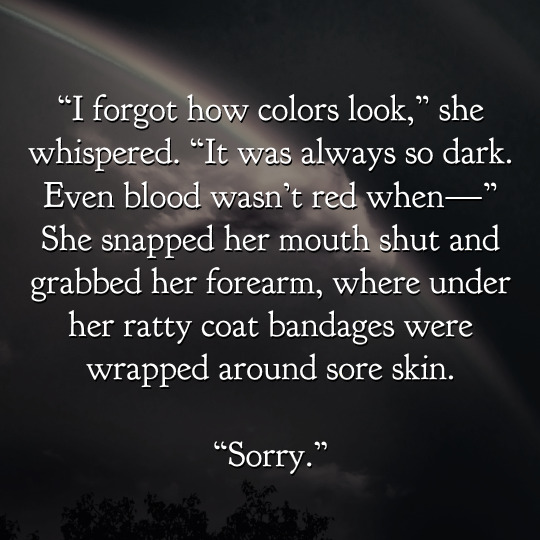
[ID: White text over a very desaturated photo of a rainbow across the sky. The text reads: “I forgot how colors look,” she whispered. “It was always so dark. Even blood wasn’t red when—” She snapped her mouth shut and grabbed her forearm, where under her ratty coat bandages were wrapped around sore skin. “Sorry.” End ID]
:(
WIP Intro
#salad-quote#wip: aool#ok that's 24h of remastered hype#we return to our regularly schedule writing content#which means: SADNESS#currently doing my last really last absolutely last pinky promise last read#as ebook to spot formatting issues#not in vain! found some :) and a better word or two
14 notes
·
View notes
Text
you can tell that i am deeply obsessed with the mars house because i now have two physical copies of it. one to rebind and keep in a place of honor in my library and one to stuff full of post it notes full of my comments while i try to climb inside gale's brain.
#noahreads#i also have it in ebook and audiobook format#i don't have a problem at all#as soon as hymn to dionysus gets a paperback version i'll be rebinding that as well#this is how i show my love to books that rewire my brain#novemberrambles
14 notes
·
View notes
Text
its been too long since I cracked the spine of a wheel of time book bc it wasn't until now that I remembered faile isn't even her real name either
#metaphorically because I have them in one format and one format only#and that's the fuckoff huge page count complete ebook omnibus version#I'm not buying those doorstoppers I move too frequently for that#wheel of time
12 notes
·
View notes
Text
The annoying thing about buying and starting a new book series and is that you'll finish it and the series goes on and you'll have to buy more
#this is about a manga volume I bought on a whim#how do we relationship#the ebook version was only 7 dollars and I got my ereader to format manga finally#but there's like fifteen volumes#so that's a hundred and five dollars i'll have to invest in it to finish it#siiiiiigh#money shouldn't exist#like I get compensating authors and artists that's why I didn't pirate it but goddamn money shouldn't exist#humanity went wrong when we developed currency#i'll die on that hill
7 notes
·
View notes
Note
For t/f: I assume you’re a huge advocate for physical books over ebooks??
False!
~
Ebooks are hugely accessible, and as someone with massive RSI issues in my wrists (partly from writing), holding heavy books and the repetition of turning pages can be literally agonising, and can even lead to me needing surgery one day for tendon release.
I do love physical books, and I have a large collection that I'm very proud of, and weed on a yearly basis. But I absolutely am not an advocate for them over ebooks, let alone a huge one. Ebooks have been such a game-changer for anyone with accessibility issues.
Readers no longer have to rely on publishers being grudgingly generous enough to offer books in large fonts if they have visual processing issues. They can change the font (most of the time) on an e-reader. Readers no longer have to lug around extremely heavy nonfiction books, and can save their backs and wrists. Readers who live in very small or cramped spaces because of poverty or other reasons no longer have to deal with 'where do I keep all these books' because some of them (or all of them) can be ebooks. Also, almost always - with mostly the exception of some university texts - they're cheaper. What a win!
On an accessibility level, ebooks win every time, especially now that we have so many lighting options so that people don't have to put up with backlight etc. anymore. They highlight just how previously ableist the publishing industry has been around visual accessibility and joint strain accessibility.
So I'm mostly a hardcore advocate of people reading how they want to read. A hybrid mix. Only audio. Only ebook. Only paperbacks. Only hardbacks. Some combination of the four.
I love the smell of books, but I don't love the dust. I love having them organised in my library, but I don't love the eternal problem of never really having enough room. I love my ebook collection, but I sometimes forget to check into it. I love that I can get very large nonfiction tomes in ebook form, but sometimes I find them harder to highlight etc. because there's something visceral to me about dragging a highlighter or pencil across a page. Everything has its pros and cons.
But ebooks beat out literally everything else except audio for accessibility (though I can't do audio ironically because of accessibility, lmao, my auditory processing for language isn't great).
#asks and answers#memey goodness#yeah no i am definitely not a huge advocate for physical books over ebooks#*honestly* i think that's a really outdated and ableist perspective#that comes from a time when authors resisted ebooks overall as being 'vanity projects'#and resented how prolific they were becoming#even libraries have gotten on board with loaning ebooks#i mean the only books i've released are ebooks#it'd be pretty hypocritical of me to be like#'but physical books are better tho'#they're really not on a lot of objective metrics#BUT i still love em#i just don't advocate for them#i advocate for people getting books in the formats that work best for them#when they can
18 notes
·
View notes
Text
Potential February Reads
East by Edith Pattou
Brideshead Revisited by Evelyn Waugh
The Beggar Prince by Kate Stradling
The Thrifty Guide to Ancient Rome: A Handbook for Time Travelers by Jonathan Stokes
Julius Caesar by William Shakespeare
The Frindle Files by Andrew Clement
A fantasy romance
#monthly reading lists#wow talk about an eclectic mix#of complex and really really not complex#but this is just what happens to be around at the beginning of the month#i'm halfway through east and debating going on#i got a vibe that now's the time to finally tackle brideshead so it's coming from the library#rereading 'deathmark' made me want to reread stradling's other latest release#the ancient rome book looked delightful and i have it out from the library#and i figure that might put me in the mood for more ancient rome and i've been meaning to reread julius caesar so that goes on the list#i just found out clement's last book was a frindle sequel so you better bet i snatched that up from the library as soon as i learned that#and it's valentine's day and also coming on to lent so i'm in the mood to read romance and random indie fantasy ebooks#i've got several options#(and fantasy might include heyer-esque regency so the nina clare's an option too)#i've also got some books i'm finishing#and some laying around that i probably won't start but may well displace some on this list#one thing i like about the new format i'm trying is that this list is more explicitly not a reading list#just a list of what's intriguing to me at the beginning of the month#to contrast with what i wind up reading by the end of it#so i can put an unrealistic mix together and see what happens
32 notes
·
View notes